Holy Childhood of Jesus Boarding School Survivors Speak Out
“It’s taken over 50 years to find my voice and speak to groups of people. I never thought I’d be doing this in my lifetime,” said Sharon Skutt, Saginaw Chippewa Indian Tribe of Michigan, a Holy Childhood Boarding School survivor.
On May 30, 2024, WMU’s Osher Lifelong Learning Institute (OLLI) hosted The Truth About Indian Boarding Schools panel at the Pine Creek Community Center. This event allowed survivors who attended Holy Childhood School of Jesus Boarding School (Holy Childhood) in Harbor Springs, Michigan, to share their truths with the audience.
“I would have never thought we would have ever gotten the chance to tell the truth about the things that happened to us while we were institutionalized,” said Tom Biron, Garden River First Nation, Ojibwe Band survivor of Holy Childhood. “I’ll say, now that I am in the seventh decade of my life, I think I am getting the most meaningful experiences of all, being able to speak freely.”
Panelists included:
- Debra Delk, a Pokagon Band of Potawatomi survivor of Holy Childhood (1964-1970), whose mother and sister also attended Holy Childhood.
- Sharon Skutt, a Saginaw Chippewa Indian Tribe of Michigan survivor of Holy Childhood (1967-1970) and a third-generation boarding school survivor; both her parents attended boarding schools and her grandfather attended Carlisle Indian Industrial Boarding School.
- Paul J. Walker Sr., a Saginaw Chippewa Indian Tribe of Michigan survivor of Holy Childhood (1971-1976), younger brother of Sharon Skutt and a third-generation boarding school survivor.
- Tom Biron, a Garden River First Nation, Ojibwe Band survivor of Holy Childhood (1956-1957).
The Importance of Speaking Out Now
“I try to forget Holy Childhood, but I believe it’s time for all of us to talk now and for people to listen and find out what we went through to survive,” said Delk.
OLLI member Robert Weir moderated the discussion and opened by stating, “I actually knew very little about the Indian Boarding Schools; it was not part of my education. I learned about the Indian boarding schools through a friend who attended the Honoring, Healing and Remembering event in 2022. What he wrote about the event impressed me enough to attend on my own in 2023, and it impacted me significantly. I came away from there saying, ‘What can I do to help raise awareness?’
“I am a white man who wants to help raise awareness about a part of our country’s history, that I learned nothing about when I was in school, and you probably didn’t either.”
Many have questioned why these survivors waited so long to share what happened to them.
“It’s important for me to speak about it because even in our own families, we didn’t talk about the boarding schools,” said Skutt. “These things that happened at the boarding school were kept inside for so long and caused a lot of damage.”
Skutt went on to explain how she suffers from anxiety, depression, and panic attacks as a result of attending Holy Childhood.
“I decided it was time to speak out about the boarding school and the things that happened there because that’s how we are going to heal. We can’t hold those things in forever.”
Other panelists echoed Skutt’s sentiments: “Truth is one of the Seven Grandfather Teachings, so it’s important to tell the truth. It’s also important to understand how to tell the truth and what kind of courage and bravery it takes to tell the truth,” said Biron.
“I ask that as we tell these things, please respect that we are trying really hard to figure this out after a lifetime of struggling with what happened and what they did to us.”
Truths Revealed
Federal Indian boarding schools were established with the objective of assimilating children from American Indian, Alaska Native, and Native Hawaiian backgrounds by forcefully separating them from their families, communities, languages, religions and cultural practices. While enrolled at these institutions, thousands of Native children suffered hardships, including insufficient food, physical and emotional mistreatment, jail-like punishment, inadequate medical care, and, sadly, some children even tragically lost their lives.
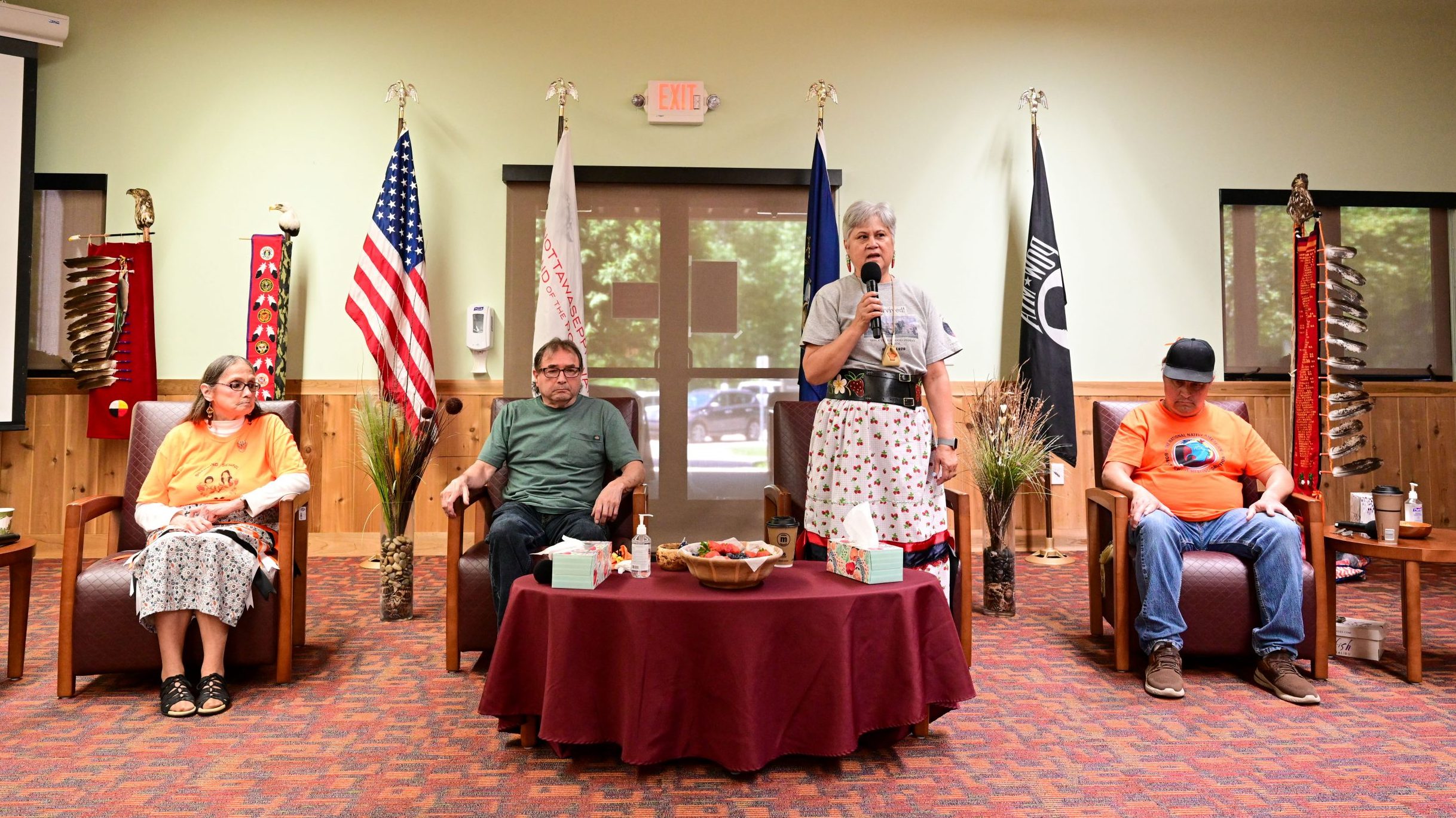
Debra Delk, Tom Biron, Sharon Skutt and Paul J. Walker Sr.
“It’s time for us to speak our truth. I don’t like it when people say, ‘Will you tell me your story?’ It’s not a story. Stories are found in books. These are not in books; these are things that happened to us,” said Skutt.
In May 2022, the United States released the Federal Indian Boarding School Initiative Investigative Report. The report shows that between 1819 and the 1970s, the United States operated or supported 408 boarding schools across 37 states, five of which were located in Michigan.
Holy Childhood opened in the 1880s and was the last Indian boarding school in Michigan to close its doors a mere 40 years ago. Run by the School Sisters of Notre Dame and the parish of the Franciscan Order of Priests, with the goal of assimilating Native American children into mainstream culture, often relocating them away from their families. They were not allowed to speak their Native languages, wear their traditional clothes, or keep their hairstyles. Even their names were changed, often to biblical ones, stripping away their cultural identities.
The atrocities that were inflicted on the children who attended these schools at the hands of individuals who had promised to take care of their loved ones not only resulted in PTSD for those who managed to fight through the experience but also left a massive impact on Tribal communities across the Nation, creating deep intergenerational trauma.
This panel discussion was an opportunity to hear the truths of individuals who suffered at the hands of the nuns and priests at Holy Childhood.
“I went from ’56 – ‘57, and I got so sick I couldn’t go back, which probably saved my life,” said Biron. He recounted his experience with Rheumatic Fever and heart disease, describing how it left him unable to walk. Consequently, he was prescribed penicillin for eight years and was frequently hospitalized over the next several years.
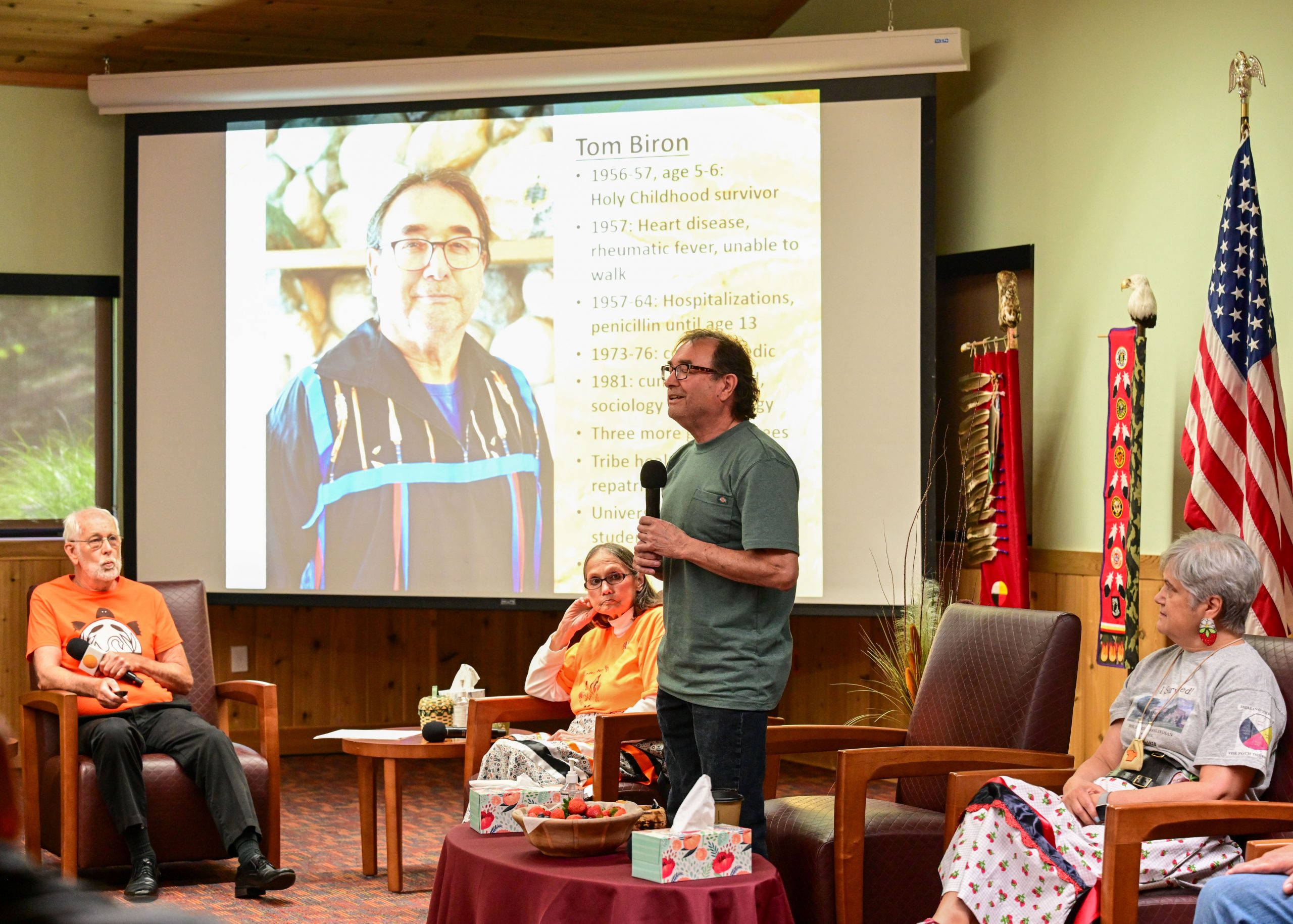
“It not only did damage to my body, but it also did damage to my family because we couldn’t afford to pay all those hospital bills, and there wasn’t any help offered.”
“Telling the truth is a teaching in itself. It’s how we rebuild and build ourselves into being good human beings,” said Biron.
“It’s important that we speak these truths so that people know. These aren’t stories; these are our history; these are things that happened to us when we were quite young,” said Walker. “I share my truths so people don’t forget and so people understand that we are here. For a lot of us, this is recent history. We share so it doesn’t get repeated, and other people’s children do not get isolated from their families and entrusted in these places without any oversight.”
“As a child, I was at Holy Childhood for six years,” said Delk. “When I went there, I was taught I was a nobody. When I returned to the public school, I had to reprogram myself. I believe you people should hear some of the hell that we went through to become survivors, and there are some of us who didn’t make it out of there. People should know our history and what we went through because you will not find these truths in a history book. The people I went to school with at public school knew nothing about boarding schools other than that you had to be ‘rich’ to go to one, and I let them believe that, because I wasn’t able to talk about my life at the boarding school.”
Navigating Between Two Worlds
For Indigenous students, moving from the familiar confines of Indian boarding schools to the unfamiliar territory of public post-secondary schools not only intensified their trauma, but also plunged them into a whirlwind of confusion and chaos as they navigated their high school years among predominantly non-Native peers.
“I went from being ‘among the Indians’ to being the only Native student in my school, and that was a huge culture shock for me,” said Walker. “Having suffered all those abuses and the daily routines that Holy Childhood had, I had no clue who I was outside of that. In high school, I turned to the party crowd because I knew those guys would watch out for me. After I graduated, I continued to party. I was basically lost; I didn’t know much about my Culture or who I was, so I drank a lot and smoked a lot of weed.”
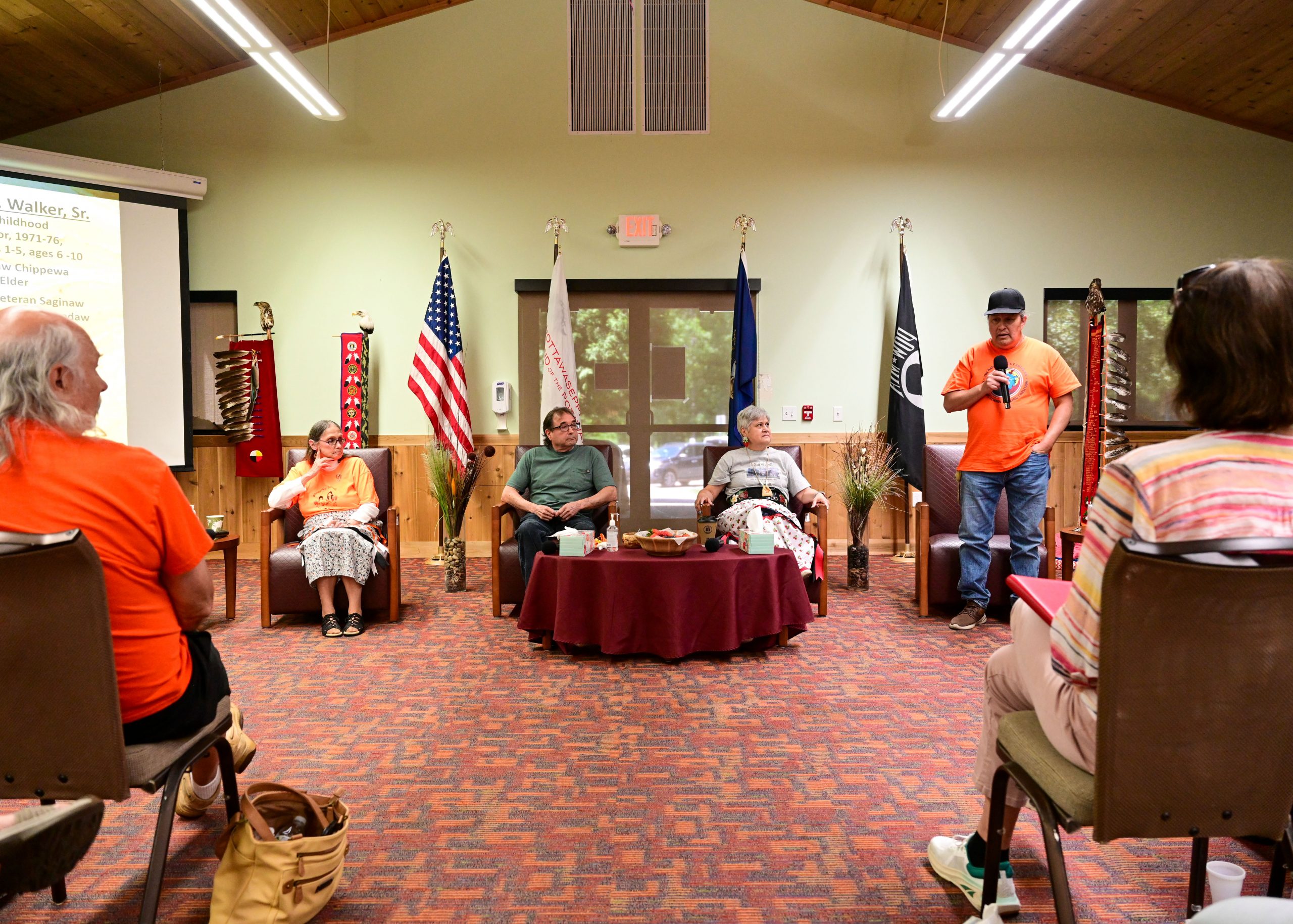
Holy Childhood.
Walker went on to explain how not having a father to raise him personally impacted him and his ability to be a parent to his own children. “I grew up without a father, so I didn’t know how to be a dad. And I don’t think my dad knew how to be a dad because his dad went to a boarding school. So, you have three generations of males who went to boarding schools, raised by nuns, who didn’t teach the men how to be dads. As a result, my relationship with my sons is strained.”
Many survivors who left Holy Childhood as young children continue to seek help in making sense of what happened to them. Understanding what happened is the key to bringing our communities together and beginning the journey to healing.
Intergenerational Trauma
The path to healing for survivors of boarding schools is long and complex, but it’s a journey filled with hope and resilience. It demands dedicated effort at both the individual and collective levels to address the intergenerational trauma caused by past federal Indian boarding school policies. These policies have left a painful legacy of mistrust within Tribal communities and perpetuated cycles of harm.
It is crucial for us to halt this cycle of trauma by recognizing its damaging impact on our people and our communities, and by actively working to discard the oppressive behaviors that it has ingrained.
“I don’t want to be fixed; I want to be respected,” said Biron. For many survivors, such as Biron, solace is found in connecting with other survivors and being part of safe spaces that allow them to speak of their experiences and hear others’ personal accounts.
Road to Healing
The Department of Interior (DOI) launched the Federal Indian Boarding School Initiative to bring awareness to the trauma that Indigenous people endure as a direct result of boarding schools. The Road to Healing Tour, a series of listening sessions within Indian Country, is an integral step in the Federal Indian Boarding School Initiative to hear from survivors and their descendants about their experiences and to influence subsequent work of the initiative.
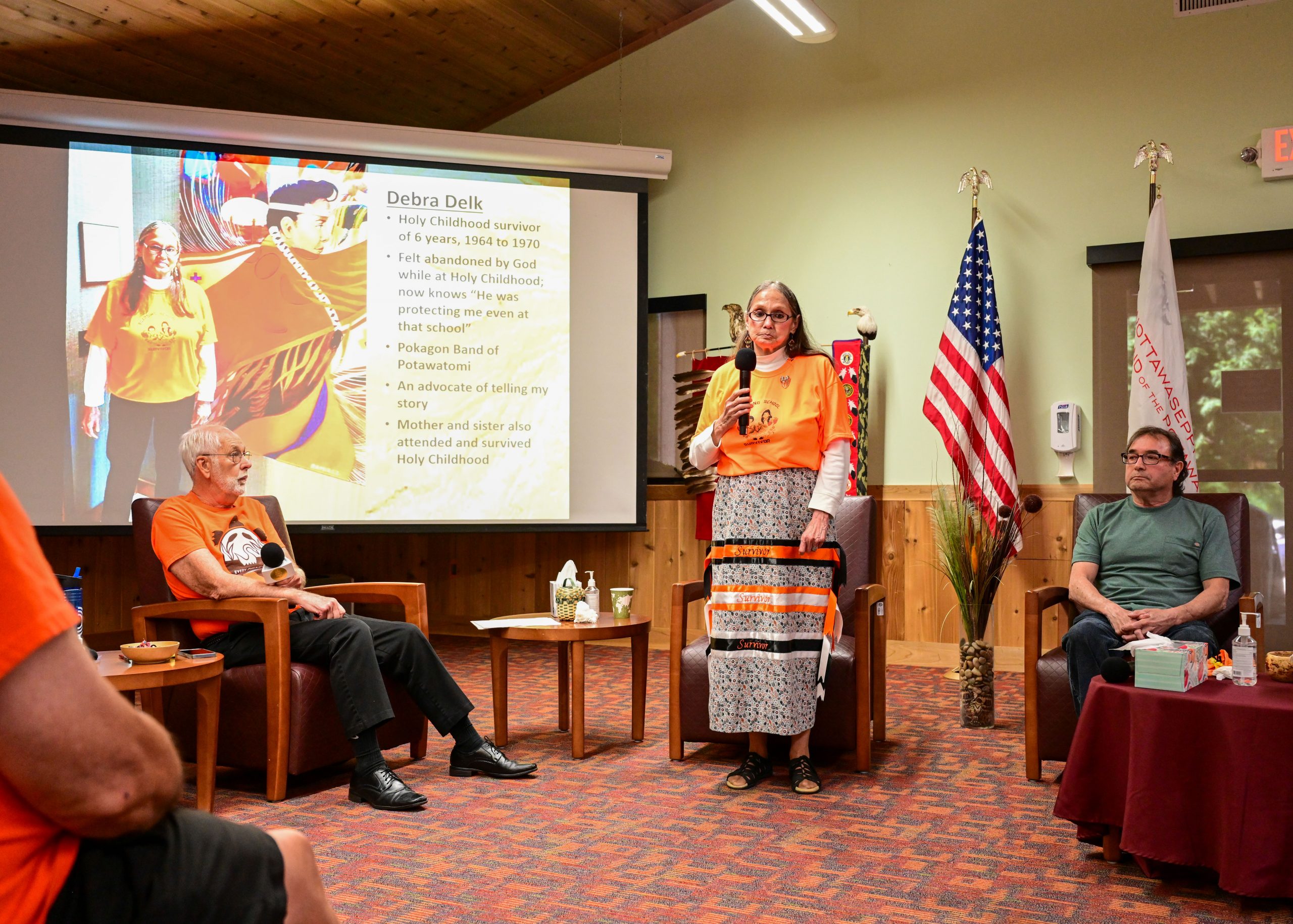
“I believe that everyone should know what we, as Native Americans, had to go through then. It’s a part of our history. It’s a part of my children’s life. I didn’t know how to be a family member. They didn’t teach you that in boarding school,” said Delk. “People need to hear the trauma this has caused throughout the families, through each generation.”
Discussions like these are a step forward for Tribal communities everywhere as we look to end the suffering created by these institutions.
In June 2021, Secretary of the Interior Deb Haaland announced the Federal Indian Boarding School Initiative, a comprehensive effort to recognize the troubled legacy of federal Indian boarding school policies with the goal of addressing their intergenerational impact and to shed light on the traumas of the past has provided a platform for these survivors to speak out.
As we uncover the hidden truths of the past, the bravery of those who survived the Indian boarding school era serves as a profound reminder of the resilience embedded within the human spirit. Long suppressed by the traumatic experiences of their youth, their voices now synchronize like a powerful beat of the Drum, urging us to listen, learn and recognize the painful chapters of history that have been ignored for too long.
It is through sharing and acknowledging these truths that we embark on a journey of healing, not only for the survivors but also for our Tribal communities and future generations. By having the courage to confront these harsh realities, we pay tribute to the strength of those who lived through them and take a crucial step toward guaranteeing that such injustices are never replicated.
Let their truths be like the resonant beats of a Drum, drawing us closer to a future where every voice is respected and cherished.
Those who wish to speak to a mental health professional about the impacts of Indian boarding schools should contact one of NHBP’s Behavioral Health Consultants, Olivia Stickney at 269.832.8134 or Jessica Bustraan at 269.986.9752.
To view the photo gallery from this event, click HERE.

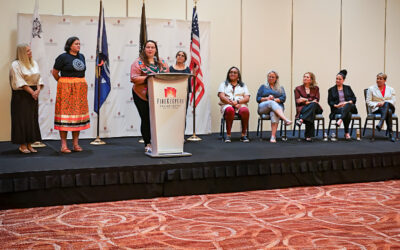

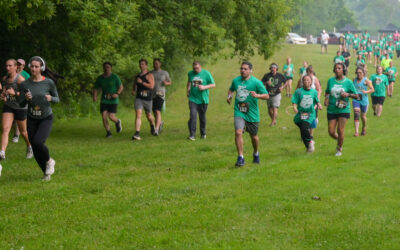
0 Comments